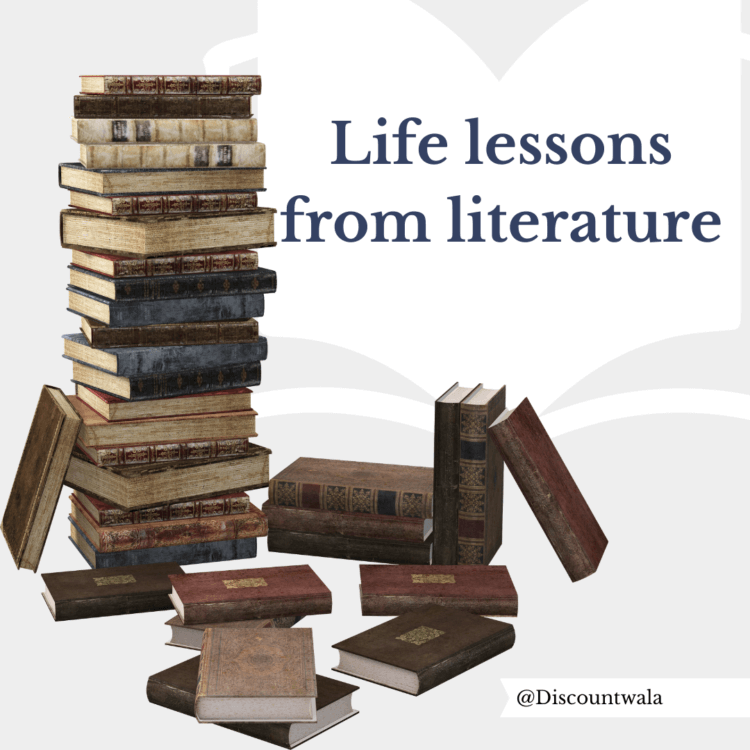Literature has long been a source of enlightenment, offering readers a glimpse into the complexities of human experience. Beyond entertainment and storytelling, literature provides a profound reservoir of wisdom that transcends time and cultural boundaries. As we embark on the journey through the pages of great works, we uncover life lessons that resonate with our own existence. In this blog, we’ll explore some of the invaluable lessons that literature imparts, lessons that can shape and guide us on our own life’s journey.
Empathy and Understanding:
Literature invites us to step into the shoes of diverse characters, experiencing their joys, sorrows, and struggles. Through this process, we develop empathy and a deeper understanding of the human condition. Novels like Harper Lee’s “To Kill a Mockingbird” and Khaled Hosseini’s “The Kite Runner” teach us the importance of empathy in fostering compassion and breaking down societal barriers.
Resilience in Adversity:
Many literary works explore the theme of resilience in the face of adversity. Victor Frankl’s “Man’s Search for Meaning” and Markus Zusak’s “The Book Thief” illustrate how individuals can find strength in the darkest of times. These stories inspire us to endure hardships, reminding us that even in the bleakest moments, there is potential for growth and renewal.
The Power of Choice:
Literature often delves into the complexities of decision-making and the consequences of our choices. George Orwell’s “1984” and Ray Bradbury’s “Fahrenheit 451” caution us about the dangers of relinquishing our freedom of thought. These cautionary tales serve as reminders that our choices shape our destinies and that we must be mindful of the impact our decisions can have on our lives and society.
Perseverance and Ambition:
Classic tales of ambition, like Shakespeare’s “Macbeth” and F. Scott Fitzgerald’s “The Great Gatsby,” shed light on the consequences of unchecked desires. They teach us that while ambition is a powerful motivator, it must be tempered with ethics and self-awareness. These stories encourage us to pursue our goals with diligence but also to reflect on the ethical implications of our ambitions.
The Complexity of Relationships:
Literature unravels the intricate dynamics of human relationships, offering insights into love, friendship, and familial bonds. Jane Austen’s “Pride and Prejudice” and Gabriel Garcia Marquez’s “One Hundred Years of Solitude” explore the complexities of love, demonstrating the importance of communication, understanding, and compromise in maintaining healthy relationships.
The Impermanence of Life:
Many works of literature explore the theme of mortality and the impermanence of life. Hermann Hesse’s “Siddhartha” and Leo Tolstoy’s “The Death of Ivan Ilyich” prompt us to reflect on the transient nature of our existence and the pursuit of a meaningful life. These stories encourage us to appreciate the present moment and find purpose beyond material pursuits.
Conclusion:
In the vast tapestry of literature, we discover a rich tapestry of life lessons that transcends time, culture, and individual experiences. As we navigate the complexities of our own lives, the wisdom woven into these stories becomes a guiding light, helping us navigate challenges, embrace empathy, and cultivate a deeper understanding of ourselves and the world. So, let us continue to turn the pages, seeking the timeless insights that literature graciously bestows upon us.










No Comments
Leave Comment